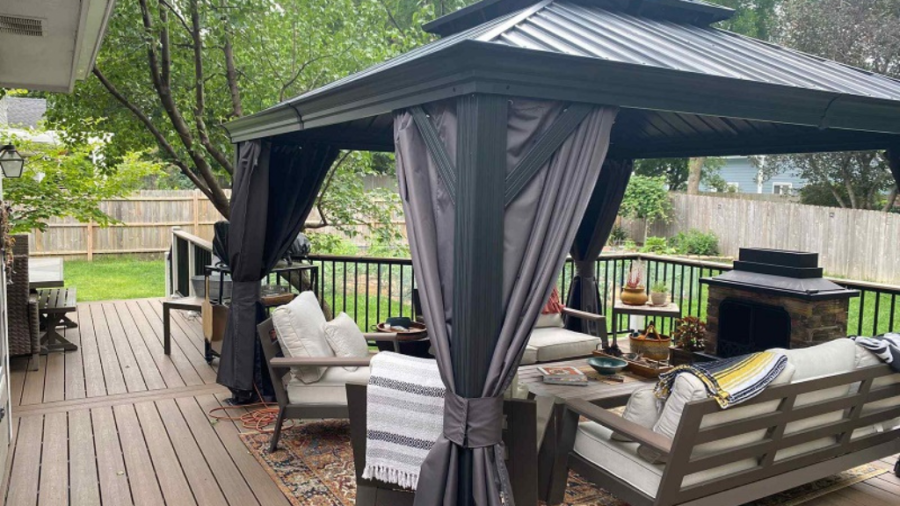When it comes to selecting between a wood deck and a composite deck, there are several factors to consider. Ankeny Deck Specialist can help you make an informed decision. Here are ten key differences between the two:
- Longevity: Composite decking typically lasts longer than wood decking, with a lifespan of up to 25 years or more, compared to around 10-15 years for wood decking.
- Durability: Composite decking is more resistant to rot, mould, and insect damage than wood decking, and it won’t splinter or warp over time.
- Maintenance: Wood decks require regular staining and sealing to maintain their appearance and prevent rot and insect damage, while composite decks require minimal maintenance.
- Eco-friendliness: Composite decking is typically made from recycled materials, making it a more environmentally friendly option than wood decking.
- Safety: Composite decking is often a safer option than wood decking, as it is less likely to splinter, which can cause injury.
- Cost-effective: While composite decking can be more expensive upfront than wood decking, it can ultimately be more cost-effective due to its longevity and minimal maintenance requirements.
- Variety of styles: Composite decking comes in a variety of styles, colors, and finishes, giving homeowners a wider range of options to choose from compared to wood decking.
- Slip resistance: Composite decking can be more slip-resistant than wood decking, especially when wet, making it a safer option for outdoor spaces.
- UV resistance: Composite decking is often more resistant to fading and sun damage than wood decking, making it a good option for sunny climates.
- Resale value: Composite decking can add value to a home, with some studies showing that it can provide a higher return on investment than wood decking.
- Authentic wood look: Many composite decking options are designed to look and feel like natural wood, providing the aesthetic appeal of wood with the durability and low maintenance requirements of composite materials.
- Sustainability: Composite decking is often made from sustainably sourced materials and can be recycled at the end of its lifespan, making it a more sustainable option than wood decking.
- Customizability: Composite decking can be easily customized to fit a variety of outdoor spaces, including curved or angled areas, while wood decking may be more difficult to shape and install.
- Reduced risk of fire: Composite decking is often more fire-resistant than wood decking, making it a safer option in areas with high fire risk.
- Low maintenance: Unlike wood decking, composite decking requires no staining or sealing, saving homeowners time and money in the long run.
- Overall, the numerous benefits of composite decking make it a popular choice for homeowners looking for a durable, low-maintenance, and eco-friendly option for their outdoor space.
Ultimately, the choice between wood and composite decking will depend on your personal preferences and priorities. If you want a natural look and feel, are willing to put in the maintenance effort, and have a lower budget, wood decking may be the better choice for you. If you want a durable, low-maintenance, and long-lasting option with more design flexibility and a higher upfront cost, composite decking may be the better choice. At Ankeny Deck Specialist, we can help you evaluate the pros and cons of each option and select the best choice for your specific needs and budget.

